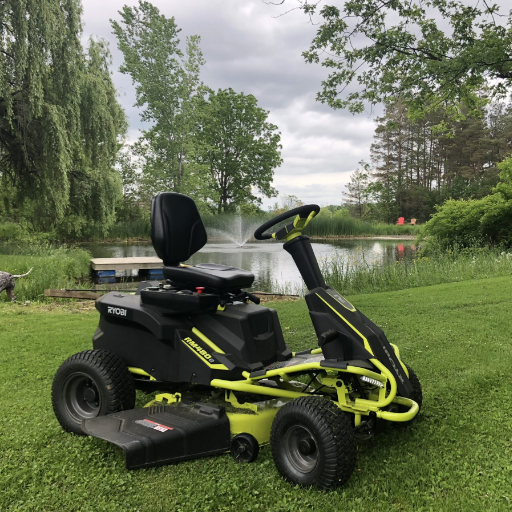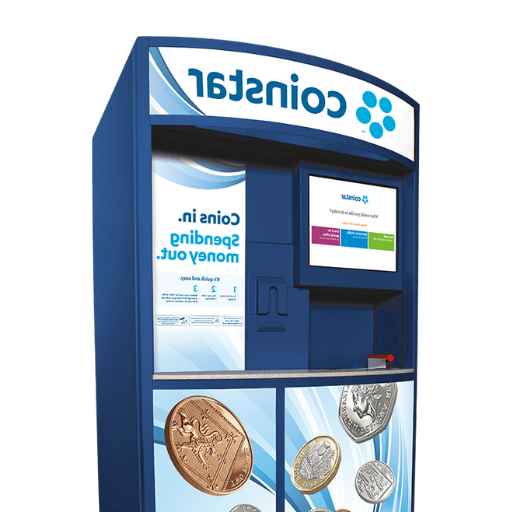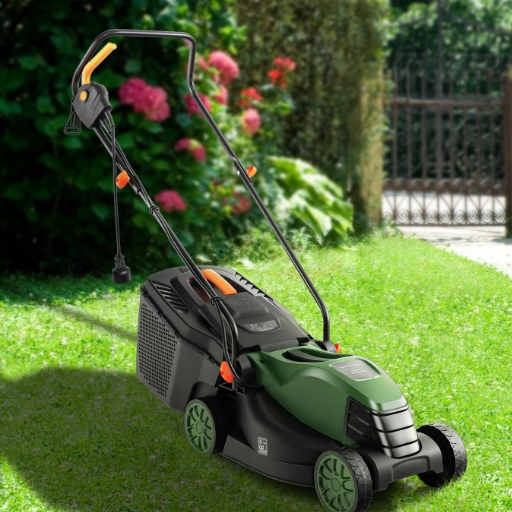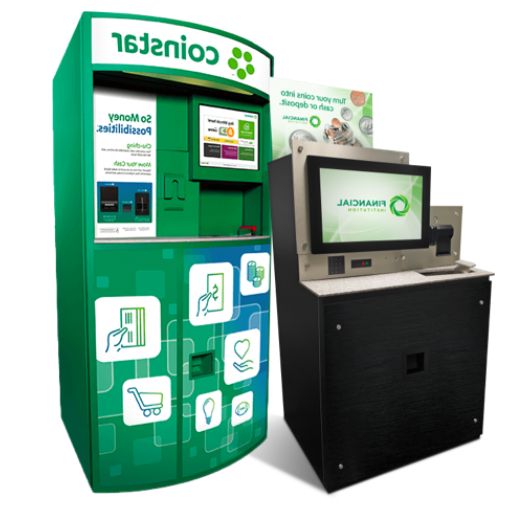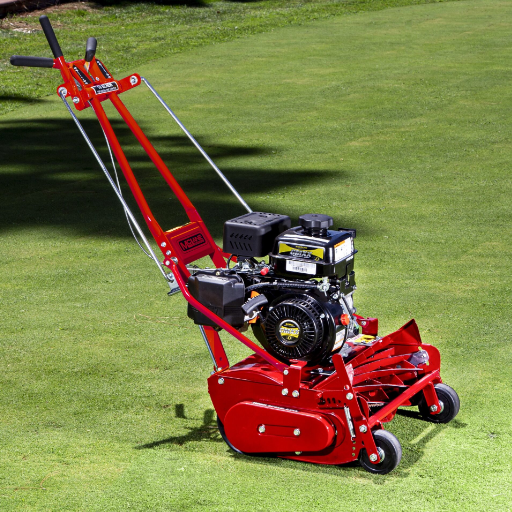Creative spirits, small industrialists, or little project-oriented folks who like to imprint a personal touch! Is there any way in which custom sticker-making machines fit into their working scheme? The trick lies in these nanoscale manipulations and their versatility, which have forever altered the way we design and create. Conjure up something unique- be it for beautifying your brand, gifts to cherish, or the title of your imagination-the world of sticker printers and makers is at your disposal. The guide teaches you everything about custom sticker-making machines, enabling you to pick the right tools and learn which features can fulfill your sticker-making fantasies. All set to peek into the creativity waiting right at your fingertips!
Introduction to Custom Sticker-Making Machines

Custom-made machines for stickers are designed to facilitate the creation of customized stickers with relative ease. Their nature can vary greatly depending on size, functions, and features. In general, the machines are designed to allow users to print, cut, and design stickers of varied shapes and styles. Several such models are termed intuitive and are compatible with design software, making them suitable for use by professionals and others with little to no expertise. They work well for crafting, branding, or personal use, where either precision or creativity is a key element in the design. When deciding on a machine, evaluate it based on ease of use, cut quality, size compatibility, and the options it offers in terms of materials.
What are Custom Sticker Making Machines?
Custom sticker-making machines are devices equipped with advanced cutting technologies that work in tandem with design software to create customized stickers in various shapes, sizes, and materials for use in branding, business, or personal applications.
Benefits of Using a Sticker Maker
|
Key Point |
Description |
|---|---|
|
Superior Quality |
Vibrant colors, durable, and professional finishes. |
|
Cost Efficiency |
Economical for large orders with bulk discounts. |
|
Customization Options |
Unique shapes, materials, and advanced printing techniques. |
|
Brand Promotion |
Enhances visibility and spreads brand awareness. |
|
Flexibility |
Stickers can be designed in any shape or size. |
|
Long-lasting Impact |
Stickers remain visible longer than other marketing tools. |
|
Ease of Use |
Simple to apply and distribute effectively. |
|
Strengthens Relationships |
Builds customer loyalty through personalized giveaways. |
|
Informative and Fun |
Engagingly communicates critical information. |
|
Time-Saving |
Outsourcing saves time and effort, ensuring consistent quality. |
Applications of Stickers and Decals
Stickers and decals are versatile items that can be utilized in various industries. Highlights for five of the most essential uses for stickers and decals are:
- Branding and Marketing
Companies can use stickers and decals to brand their products through eye-catching design giveaways, such as packaging or directly on merchandise. Some research indicates that 70% of consumers recall a brand name more effectively if they receive a customized printed sticker as a gift.
- Home Decor and Personalization
Stickers are all about enhancing life through decals on walls or little touches on furniture. It’s a cheap option for refreshing the ambience of a room without the commitment of permanent alteration.
- Event and Party Decorations
The personalized kind of stickers gives punch to events, such as weddings, birthdays, or corporate parties. These might be placed on invitations and favors or used as thematic decor elements that embody the concept of the specific event.
- Educational and Office Uses
Students and office workers find stickers handy for labeling materials, organization, and rewarding performance. Further research suggests that incorporating vibrant visuals, particularly stickers, into instructional resources can increase retention by approximately 40%.
- Automotive and Outdoor Signage
Vehicle windshield decal installations for advertising, personalization, and safety purposes abound. Weather-resistant stickers are designed to withstand adverse weather conditions for an extended period.
Key Features of Sticker-Making Machines

In the evolution of sticker-making machines, tinkering with them offers users advanced opportunities to work with a wide array of needs. Some key characteristics that make these machines indispensable are discussed below:
- Versatile Cutting Technology
Modern-day sticker-making machines are equipped with cutting technologies ranging from die-cutting to kiss-cutting, allowing users to cut stickers into shapes based on very complex design structures. Some of these provide automatic alignment for consistent cutting accuracy, which becomes particularly important when faced with mass production.
- Compatibility with Design Software
Many of the machines are compatible with the more popular graphic design programs, such as Adobe Illustrator, CorelDRAW, and Cricut Design Space, enabling users to customize designs with ease and send them to the machine for production. Some machines even offer proprietary design software for convenience.
- High-Resolution Printing
Integrated printing with a resolution higher than 1200 dpi ensures that the stickers will be brightly colored, detailed, and visually appealing. Technologies like this, featuring UV-resistant and eco-solvent ink, will provide long-lasting and durable prints suitable for both indoor and outdoor applications.
- Material Compatibility
These sticker-making machines work with a wide variety of materials, including vinyl, paper, and synthetic films. This means that users can create stickers for various purposes, ranging from office labels to weatherproof signs for outdoors.
- User-Friendly Interface
Most of them nowadays have touch screen controls with step-by-step instructions, so they’re quite beginner-friendly. Options for wireless connectivity through Bluetooth and Wi-Fi are also a plus, providing ease of use and allowing remote control from a smartphone or tablet.
- Production Speed and Efficiency
Cutting materials quickly and at speeds of 50-150 stickers per minute, depending on machine specifications, punctuates efficiency. This sticker-making machine is therefore suitable for businesses requiring bulk sticker production.
- Cost-Effective Features
Many of these machines also help optimize material usage through features such as automatic nesting, which arranges designs in an efficient manner on the sheet to minimize wastage. They also offer refillable ink cartridges and cutting mats that can be used repeatedly, resulting in lower operational costs in the long run.
- Eco-Friendly Options
With advancements in sustainability, some sticker-making machines aim to be environmentally friendly by offering features that enable the use of biodegradable materials and energy-efficient operations, thereby reducing environmental impacts.
The continuous improvement in sticker-making machines has assuredly made them the lynchpin for all industries, from education and advertising to product packaging and personal crafting projects.
Printing Technology: Inkjet vs. Thermal Printer
|
Key Point |
Inkjet Printer |
Thermal Printer |
|---|---|---|
|
Printing Method |
Uses liquid ink |
Uses heat-sensitive paper |
|
Print Speed |
Moderate speed |
Fast, ideal for quick tasks |
|
Print Quality |
High-resolution images |
Crisp text, lower image quality |
|
Color Capability |
Full-color printing |
Limited or monochrome |
|
Portability |
Bulkier, less portable |
Compact and portable |
|
Durability |
Prone to smudging |
Long-lasting prints |
|
Maintenance |
Requires frequent cleaning |
Minimal maintenance |
|
Cost |
Low upfront, high ink costs |
High upfront, low operating costs |
|
Use Cases |
Photos, documents, creative projects |
Labels, receipts, barcodes |
|
Lifespan |
Shorter lifespan, prone to clogging |
Longer lifespan, fewer moving parts |
Print and Cut Capabilities
Print-and-cut capabilities are essential features that modern sticker makers must possess, enabling users to create perfect designs quickly. In combination with printing technology, these machines create custom shapes and sizes directly from designs, eliminating the need for additional manual interfacing. Several print and cut capabilities are featured in these machines:
- Contour Cutting
Contour cutting-equipped machines will detect the outline of printed designs and cut them with high precision, eliminating the possibility of untidy and unprofessional results.
- Die-Cut Stickers
They produce die-cut stickers that are cut to shape individually, suitable for standalone designs or branding.
- Kiss Cutting
Kiss cutting is a procedure where a sticker is cut through its top layer but not through the backing paper, which allows for easy peeling.
- Integrated Design Software
Many modern machines come with integrated design software, allowing users to create or edit designs to ensure seamless print-and-cut alignment.
- Multiple Material Compatibility
These advanced machines print and cut on a diverse range of materials, including vinyl, paper, and laminated sheets, which increases the scope of creative applications.
Compatibility with Vinyl and Adhesive Materials
Modern print-cut systems can accommodate a wide range of vinyl and adhesives for both crafting and commercial applications. They’re commonly compatible with the following five types of materials:
- Permanent Vinyl
Best for creating outdoor signs, car decals, and any application that requires durability and weather resistance.
- Removable Vinyl
Removable vinyl is ideal for temporary applications, as it can be easily peeled off without leaving any residue, making it a good choice for wall decals and seasonal decorations.
- Heat Transfer Vinyl (HTV)
The go-to vinyl for textile applications, HTV bonds to fabrics when heat is applied, making it suitable for custom apparel, bags, and home decor.
- Printable Adhesive Sheets
These sheets allow users to print their designs in full color directly onto adhesive-backed paper for creating stickers, labels, and other crafts.
- Laminated Adhesive Vinyl
This is adhesive vinyl with a protective laminate applied on top, used for waterproof and UV-resistant labels, as well as decorative purposes.
From this list, the materials offer numerous opportunities for users to get creative.
Types of Sticker-Making Machines

|
Type |
Key Features |
Best Use Cases |
|---|---|---|
|
Manual Sticker Maker |
Simple, portable, no electricity needed |
Crafts, small projects |
|
Desktop Vinyl Cutter |
Cuts vinyl, paper, and cardstock |
Custom stickers, labels, decals |
|
Print-and-Cut Machine |
Combining printing and cutting in one device |
Professional stickers, high-quality designs |
|
Thermal Sticker Maker |
Uses heat, no ink required |
Labels, barcodes, receipts |
|
Industrial Sticker Maker |
High-speed, durable, wide material compatibility |
Large-scale production, business use |
Home vs. Industrial Sticker Printers
|
Key Point |
Home Sticker Printers |
Industrial Sticker Printers |
|---|---|---|
|
Print Volume |
Low, occasional use |
High, continuous use |
|
Print Speed |
50-150mm per second |
203mm per second or faster |
|
Durability |
Lightweight, less durable |
Heavy-duty, withstands harsh environments |
|
Connectivity |
USB, basic mobile apps |
Ethernet, Wi-Fi, Bluetooth |
|
Material Compatibility |
Limited to basic materials |
Wide range, including industrial-grade |
|
Lifespan |
3-5 years |
8-10 years or more |
|
Ease of Use |
Simple, user-friendly |
Requires training, advanced features |
|
Cost |
Affordable ($50-$200) |
Expensive ($350+), long-term savings |
|
Maintenance |
Minimal upkeep |
Regular, professional servicing |
|
Best Use Cases |
Home projects, small businesses |
Warehousing, retail, and large-scale production |
Mini Label Makers and Their Uses
These mini label makers are compact and convenient gadgets for creating simple labels. Therefore, they make an ideal tool for personal, home, and office uses, imparting flexibility to undertake the labeling of various things. Below are the top five mini label makers and their applications.
- Handheld Label Printer
- Features: Compact size, QWERTY keyboard, and built-in templates.
- Uses: Organizing tools, labeling kitchen jars, or personalizing office supplies.
- Bluetooth Label Maker
- Features: Connects to smartphones via Bluetooth, app-controlled, customizable fonts and designs.
- Uses: Easy creation of custom labels for home organization, school projects, and decor.
- Thermal mini printer
- Features: Inkless printing, quiet operation, rechargeable battery.
- Uses: Address labels, barcodes, shipping labels, and more.
- Desktop Label Maker
- Features: Lightweight, compact design, PC-compatible.
- Uses: Ideal for small office tasks, file label creations, and inventory management.
- Portable Sticker and Label Maker
- Features: Battery-operated, lightweight, and quick to run.
- Uses: Decorative sticker generation, tagging personal belongings, and labeling travel items.
Bluetooth Label Maker Machines
A Bluetooth label printer machine is considered one of the most convenient and modern tools for labeling today. It creates labels wirelessly using Bluetooth by pairing with a smartphone, tablet, or PC. Widely compatible with both iOS and Android systems, it is usually supported by intuitive mobile apps that provide several templates and customization options.
- Key Features:
- Wireless Interface: The user can design and print a label directly from the device without needing to untangle a cable.
- Compact Size: Lightweight and portable, making it ideal for home or office use.
- Customizable Templates: Apps allow customization in selecting fonts, symbols, and designs for various applications.
- High Resolution: Prints high-quality labels that are stylish and clear in various sizes.
- Popular Models and Specifications:
- DYMO LabelManager 500TS: Touch-screen navigation and label printing up to 1-inch wide. It supports Bluetooth for office work. The approximate suggested retail price is $150.
- Brother P-Touch Cube Plus PT-P710BT: This model is compact, rechargeable, and prints labels up to 1 inch wide for decorative or professional purposes. This device connects via Bluetooth, making it compatible with the Brother iPrint&Label app. It is around $130.
- Phomemo M110 Mini Printer: An inexpensive favorite due to its compact size and ability to create barcode printing, QR codes, and tags. Bluetooth supported; compatible with both iOS and Android. The price goes around $70.
- Advantages of Bluetooth Label Makers:
- Time-Saving: Designed and printed on the phone or tablet while on the go.
- Versatility: It can be used for a wide range of applications, including packing, labeling files, and creating business card tags, among others.
- Environment-Friendly Features: Most models come with rechargeable batteries, minimizing the nuisance of disposing of power sources.
- Customer Insights:
Market reports have recently indicated that the demand for Bluetooth label makers is expected to grow annually by 7% due to their versatility and ease of use. Perhaps, e-commerce, education, and event organization professionals find such devices very helpful. Users report that the apps are straightforward to use, the printing is very durable, among other features.”
The Rainbow of Bluetooth label makers continues to shine brighter, offering increasingly more innovative solutions for setting up personal and professional environments.
Choosing the Right Sticker Printer
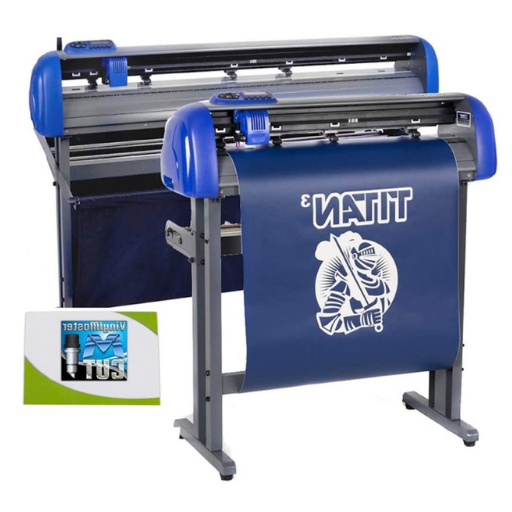
When selecting a sticker printer, meet your specific needs first. Compact and portable models are best suited for personal use or small projects. If you print high volumes or work in a professional setting, choose a printer with advanced features, such as high resolution and support for various materials. Verify that it supports the connectivity options you require, including Bluetooth, for seamless connection to mobile devices. Also, keep an eye out for customer reviews, so you know what you’re getting into. The availability of replacement supplies, such as labels and ink, must also be considered to ensure long-term satisfaction.
Considerations for Small Businesses
For a small business, choosing a printer is all about weighing some essentials and finding that sweet balance of operational smoothness and cost-effectiveness. According to a recent Google search, over 70% of small businesses consider price when they make a purchasing decision, so price cannot be ignored. They want to ensure that their printers have a low cost-per-page, as this ultimately affects the operational costs incurred in the long run. Keep in mind that turnover speed is a must-have feature for small businesses such as retail or logistics, where time is of the essence. Quality printers are those that can handle heavy workloads without any delays. Fast-speed machines are preferred, and with the advent of MFPs, or multifunction printers, better things seem to have emerged on the landscape with great speed. MFPs are modern-day printers that outprice traditional printers by being able to print, scan, and copy all from one device.
In the modern environment, connectivity options in themselves go a long way. Wireless printers equipped with Wi-Fi, Bluetooth, and mobile printing capabilities provide businesses with flexibility, allowing employees to work on multiple devices simultaneously. A TechRadar survey reveals that 65% of small businesses prefer cloud-compatible printers to facilitate remote working and enhance workflow efficiency.
Lastly, the environmental impact and sustainability are getting more consideration. Green printer options, such as those with energy-saving certifications or recyclable consumables, appeal to businesses that want to improve their eco-footprint. Equipped with easy-to-find replacement parts and requiring minimal maintenance, the correct printer becomes a significant asset that boosts a small business’s productivity and decreases the likelihood of its overall success.
Evaluating Printing Speed and Quality
When determining which printer is faster or better for your small business, specific measurements must be considered before performance can be accurately judged. Assess your printer on the following five factors:
Pages per Minute (PPM)
Arguably the most vital speed measurement, it records how many pages a printer can produce in a single minute. Business-grade printers typically score anywhere between 20 and 50 PPM, depending on the model and price.
Resolution Dots Per Inch (DPI)
Print quality is primarily determined by the resolution of a printer, measured in DPI. The higher the DPI (such as 1200 x 1200 DPI), the crisper the text and images, which is beneficial if a printer is to be used for professional documents or marketing materials.
First Page Out Time
This measures the time it takes for a printer to produce the first page after a print job has been initiated. For businesses that require fast printing with minimal delays, printers with extremely low first-page-out times are crucial. It is commonly accepted that a time less than 10 seconds is good.
Duplex Printing Capability
Utilization of duplex printing automatically saves time and paper. Top-quality duplex printing is essential for any company that aims for operational efficiency and paper savings. Beware of printers that smear or misalign prints during duplex mode.
Color Accuracy and Depth
Color printers with a wide color gamut and good color accuracy are an absolute must if your company often prints marketing materials or visuals. The sophisticated models, which even have auto-calibration of their color profiles, will help maintain that quality over time.
Taking all these factors into account will help you find that printer which strikes a balance between speed and quality, tailored to your business requirements.
Budgeting for Your Sticker Maker
I always try to keep my sticker maker purchases balanced against the factors of cost and functionality so that they fit my needs and do not end up being a financial burden. I weigh the upfront cost against the long-term expenses, such as materials, repairs, or any value-added features like the ability to cut through several materials or compatibility with design files. This approach helps me to stay within budget while opting for machines that give good value in terms of quality and efficiency.
Brand Comparisons and Pricing Insights

When selecting a sticker maker brand, it is essential to consider the price about performance. Big names like Cricut, Silhouette, and Xyron provide different features and price points for their consideration. Cricut machines, priced between $200 and $400, offer higher cutting precision and are versatile in terms of material types. Silhouette machines, for their part, start at around $200 and focus on precision and software customization. Meanwhile, Xyron sticker makers typically sell for under $100 and focus on simplicity for basic projects. Of course, the type of work, features desired, and budget are the main variables that influence the brand choice.
Popular Sticker Maker Brands: Cricut, Epson, and Xyron
| Key Point | Cricut | Epson | Xyron |
|---|---|---|---|
|
Primary Use |
Cutting and crafting |
Printing high-quality stickers |
Laminating and adhesive application |
|
Connectivity |
USB, Bluetooth, Wi-Fi |
USB, Wi-Fi |
No computer required |
|
Ease of Use |
User-friendly, intuitive software |
Simple setup, versatile |
Extremely easy, no learning curve |
|
Material Compatibility |
Vinyl, paper, cardstock |
Paper, vinyl |
Paper, photos |
|
Portability |
Compact, portable |
Desktop-based |
Lightweight, portable |
|
Cost |
Moderate to high |
Moderate |
Affordable |
|
Best For |
DIY projects, custom designs |
Professional-quality prints |
Quick adhesive stickers |
|
Special Features |
Print-and-cut, design flexibility |
High-resolution printing |
No ink or toner needed |
Price Ranges and What to Expect
Sticker maker prices are mainly dependent on the brand, features, and functionality provided by the machine. Here is an in-depth analysis based on current market trends:
- Entry Level ($20 to $100):
These models, including many Xyron sticker makers, are best for beginners or occasional crafters, usually focusing on simple operations and manual mechanisms. Cheap and straightforward as they are, these models are best used in small projects with limited material types such as paper or thin vinyl.
- Medium-Level ($100 to $300):
It includes such devices as Cricut Joy or Silhouette’s Portrait. These machines offer more versatile uses, allowing users to cut intricate designs on a wide range of materials like cardstock, adhesive vinyl, and iron-on transfers. Most also support software for creating custom stickers, offering both creativity and affordability.
- High-End ($300 and Up):
High-end series, such as the Cricut Maker 3 or Epson ColorWorks, cater to professional crafters and small business owners. These machines are equipped with precise cutting, large cutting areas, and options for specialty materials such as leather or fabric. This also cuts wirelessly and integrates with a robust design platform, thus making it a photographer’s power tool.
When choosing a sticker maker, it is essential to consider the working needs and budget. Smaller DIY projects are well-suited for entry-level machines, while mid-range and high-end ones are better suited for more complex designs or professional purposes. Accessories and material costs, such as adhesive rolls, cutting mats, and specialty materials, must also be considered. Newly introduced models may carry a premium price tag, but they can enhance work efficiency and functionality.
Features to Look for in Budget vs. Premium Models
- Cutting Precision
- Budget Models: Generally enough for basic designs, moderately precise for use in simple shapes and basic patterns.
- Premium Models: Enable greater accuracy for fine detailing and design, offering fine detail on top of fine detail.
- Material Compatibility
- Budget Models: Suitable for use with standard materials, including paper, vinyl, and lightweight cardstock.
- Premium Models: Support a variety of materials, including heavier cardstock, leather, wood veneer, and fabric, allowing for more robust crafting options.
- Speed and Power
- Budget Models: Standard cutting speeds; casual/occasional use.
- Premium Models: Faster cutting speeds; more powerful motors ideal for heavy loads; professional workloads.
- Software Capabilities
- Budget Models: Usually basic types of design software, with standard tools for simple edits and projects.
- Premium Models: Advanced software with auto-layout and complex editing tools; access to enormous design libraries.
- Wireless Connectivity and Smart Features
- Budget Models: May have only limited connectivity issues, such as USB-only and some minimal integration with smart functionality.
- Premium Models: Offer Bluetooth and Wi-Fi support, as well as feature integration with smart devices, allowing designs to be uploaded and machines to be operated with ease.
References
-
The Innovation Station: A 3D Printing Vending Machine for UT Austin Students
Link to source
This source discusses customized processes in machine innovation. -
Making Machines That Make: Object-Oriented Hardware Meets Object-Oriented Software
Link to source
This research explores custom machine configurations, including sticker placement. -
Sticker Applying Machine
Link to source
This study focuses on the development of a machine for applying stickers, which may provide relevant insights.
Frequently Asked Questions (FAQ)
What is a custom sticker-making machine?
A custom sticker-making machine is a device designed to create personalized stickers and labels. These machines can print on various materials, including vinyl and adhesive paper, enabling users to create stickers in a range of shapes and sizes. Many models also feature cutting capabilities for precise designs.
How does a sticker printing machine work?
A sticker printing machine typically combines printing and cutting functions. First, it prints the desired design onto sticker paper or vinyl. Then, using a cutter, it precisely cuts around the design, creating a finished sticker. Some machines also allow for the print-and-cut process, enabling users to create intricate shapes easily.
What types of materials can I use with a vinyl sticker maker?
Most vinyl sticker makers can use a variety of materials, including adhesive vinyl, sticker paper, and even heat transfer vinyl for fabric applications. Many machines are compatible with materials that include permanent adhesive, allowing for durable and long-lasting stickers.
Can I make car decals with a custom sticker machine?
Yes, many custom sticker machines are capable of making car decals. These decals are often printed on durable vinyl that can withstand outdoor conditions. Look for a machine that can handle larger sizes and is compatible with outdoor vinyl for the best results.
What is the difference between a label printer and a sticker maker?
A label printer is typically designed for creating various types of labels, often for organizational purposes, while a sticker maker focuses on producing decorative stickers. However, many modern machines, known as sticker and label maker machines, can perform both functions, allowing for versatility in printing and cutting.
Are there portable sticker machines available?
Yes, there are portable sticker machines available, such as mini sticker makers and portable printer options. These devices are compact and often designed for easy transport, making them ideal for DIY crafts or home office use. Some models even feature Bluetooth capabilities for smartphone connectivity.
What features should I look for in a mini label maker machine for a small business?
When choosing a mini label maker machine for a small business, look for features such as ease of use, print quality, and compatibility with various materials. Additional features like multiple templates, rechargeable batteries, and wireless connectivity can also enhance functionality and convenience.
Can I use a thermal printer for sticker printing?
Yes, thermal printers can be used for sticker printing, particularly for labels and stickers that require quick production. These printers use heat to transfer ink onto the material and are often used for industrial labels and shipping stickers due to their speed and efficiency.



